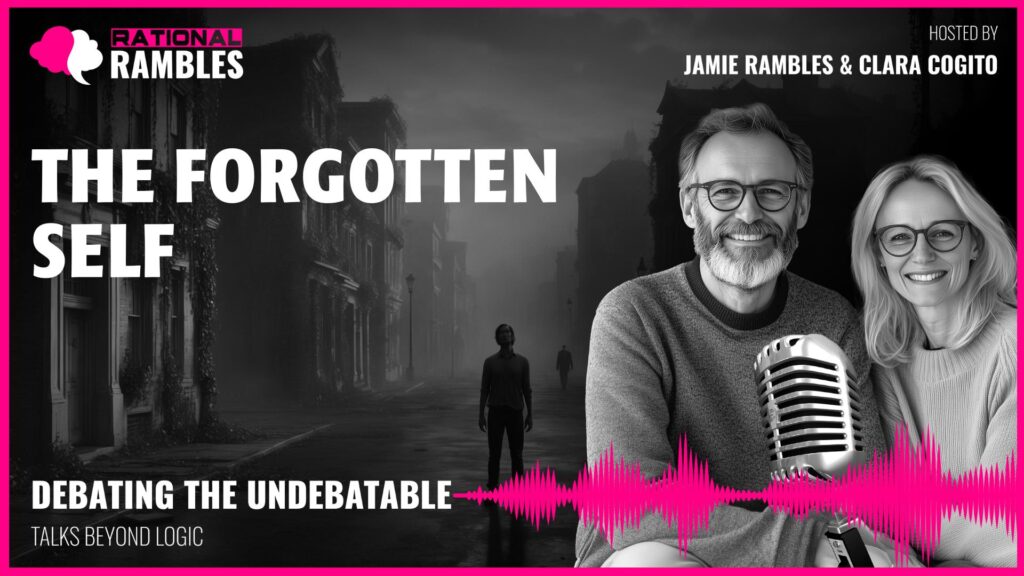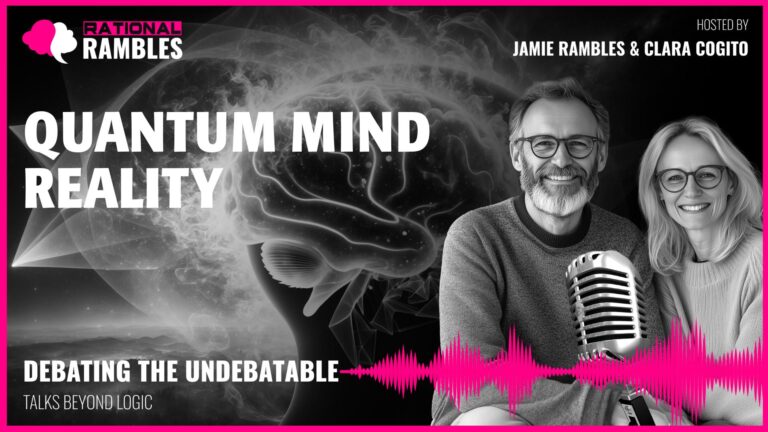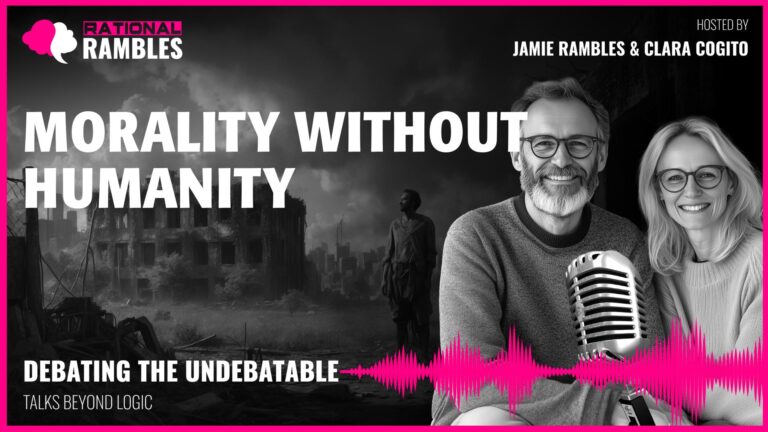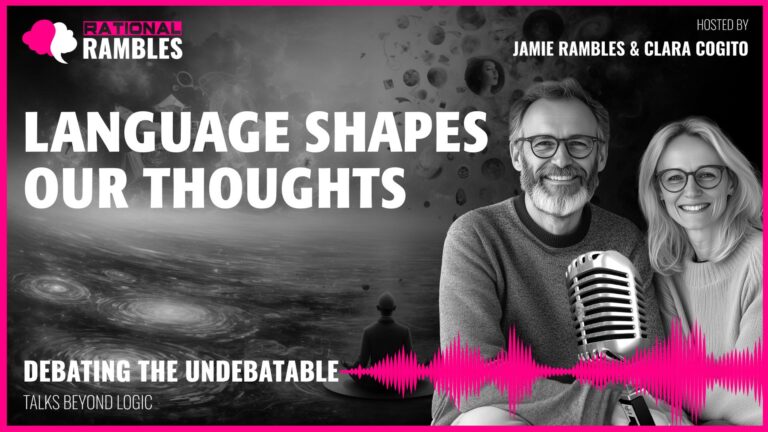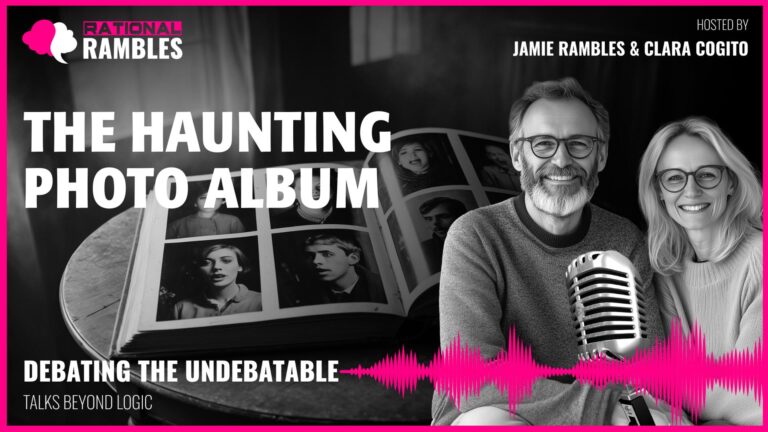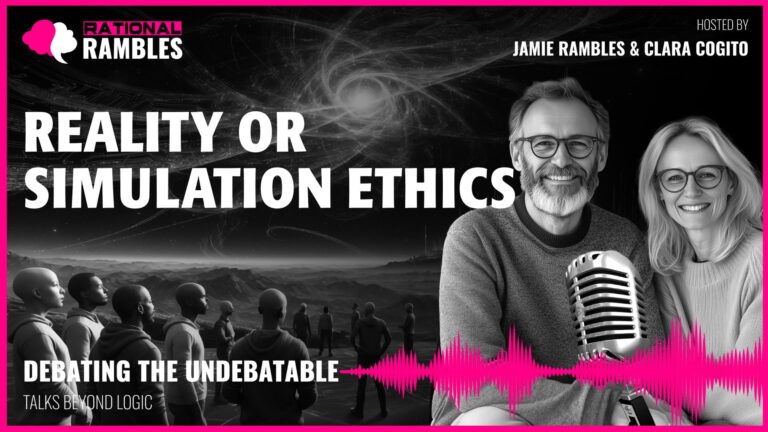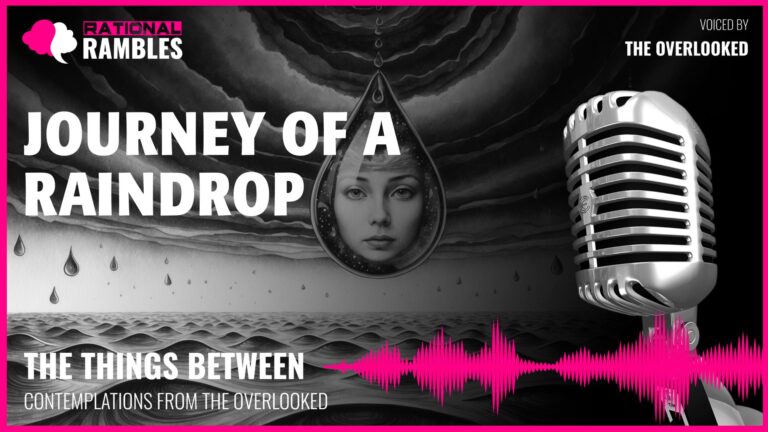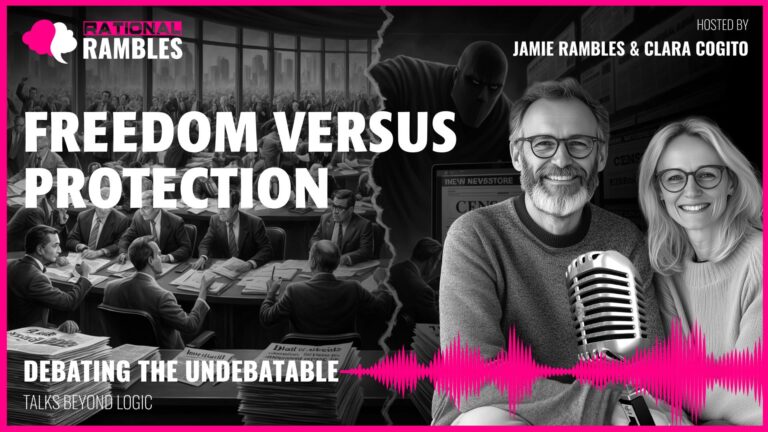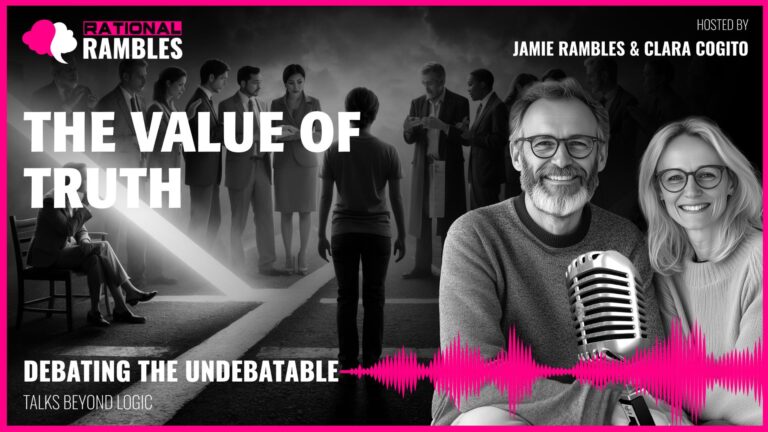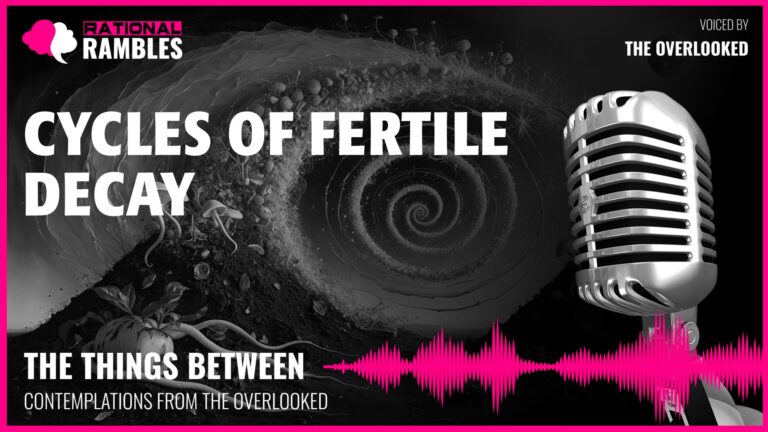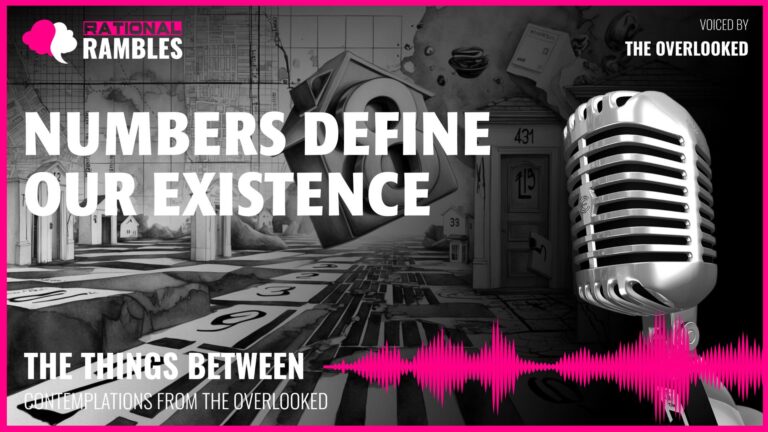The Forgotten Self: Exploring Identity, Recognition, and Existence in a World That Doesn’t Remember You
Introduction: The Unthinkable Rupture
Imagine the most unsettling scenario: you wake up tomorrow morning to discover that no one—absolutely no one—remembers who you are. Your family greets you as a stranger, friends fail to recognize you, colleagues have no recollection of your work together. Your entire social existence has been erased overnight, while you alone retain every memory, every relationship, every shared moment of your previous life.
This thought experiment, disturbing as it may be, offers a profound philosophical window into the nature of human identity, the relationship between recognition and selfhood, and the foundations of our existence as social beings. By contemplating this extreme rupture between internal self-knowledge and external recognition, we can explore fundamental questions about what constitutes our identity and how deeply our sense of self depends on social validation.
As we navigate this unsettling terrain, we’ll examine the philosophical implications of social erasure, the psychological impact of such a profound disconnect, and the various ways humans might respond to this extraordinary circumstance. Through this exploration, we may discover that our concept of selfhood is more complex, more multi-layered, and perhaps more resilient than we typically assume.
The Philosophical Rupture: Identity Without Recognition
The scenario of being forgotten by everyone creates an existential crisis that strikes at the heart of philosophical debates about personal identity. Throughout history, philosophers have struggled to define what constitutes the “self,” with different traditions emphasizing different aspects of human existence.
Hegelian Recognition and the Social Self
For G.W.F. Hegel, self-consciousness fundamentally requires recognition from others. In his famous master-slave dialectic, Hegel argues that we need the acknowledgment of other conscious beings to fully realize ourselves. Our thought experiment creates a direct challenge to this Hegelian understanding by presenting a case where self-consciousness persists while social recognition vanishes entirely.
This scenario could be described as a form of “social death while remaining biologically and psychologically alive.” The individual retains their internal sense of identity but loses all external confirmation of that identity—creating a profound rupture in the Hegelian circuit of mutual recognition that normally grounds human consciousness.
Lockean Memory and Personal Identity
John Locke tied personal identity primarily to psychological continuity—particularly memory. In his view, you are the same person as your past self because you can remember being that person and taking those actions. Our thought experiment creates a situation where your psychological continuity exists solely within your own mind, with no external validation.
This raises a troubling question: if your memories of relationships leave no trace in others’ minds, can you be certain those relationships were ever real? The scenario challenges the reliability of memory itself, forcing a confrontation with radical doubt about one’s past experiences.
Existentialist Authenticity in Social Void
Existentialist philosophers like Jean-Paul Sartre emphasized that “existence precedes essence”—we define ourselves through our choices rather than through predetermined categories. Being forgotten by everyone creates what might be called a “Kierkegaardian situation,” forcing authentic choices without the comfortable scaffolding of established identity.
While profoundly disorienting, this scenario might also represent what existentialists would consider an opportunity for authentic self-creation. Freed from others’ expectations and preconceptions, you would face the radical freedom to redefine yourself—though this freedom would come at the tremendous cost of lost connection.
The Buddhist Perspective: Non-Attachment to Self
Buddhist philosophy, with its emphasis on non-attachment to the concept of a permanent self (anatta), offers yet another perspective. From a Buddhist viewpoint, our clinging to fixed identity and social recognition is itself a source of suffering. While certainly not diminishing the psychological trauma of our scenario, Buddhist practice might provide resources for navigating it—emphasizing the impermanence of all phenomena, including social identity.
This perspective suggests that the suffering in our scenario stems not just from the situation itself, but from our attachment to a particular conception of selfhood that requires social validation. The Buddhist approach would not eliminate the pain of social erasure but might offer philosophical tools for relating to that pain differently.
The Psychological Impact: Mind, Memory, and Meaning
Beyond philosophical questions, being forgotten by everyone would create profound psychological challenges that strike at the core of how humans maintain mental stability and coherence.
The Immediate Psychological Crisis
The initial experience would likely trigger an acute psychological crisis. Research on social exclusion and ostracism by psychologists like Kipling Williams has shown that even brief experiences of being ignored activate the same brain regions as physical pain. The total erasure of social recognition would likely create extreme psychological distress.
The forgotten individual would face a fundamental epistemic crisis—a choice between two equally disturbing explanations: either the entire external world has radically changed overnight, or their memories are completely false. Both possibilities undermine the foundations of how we navigate reality and could trigger profound disorientation similar to what psychiatrists call “derealization”—a feeling that the world is not real.
Grief Without Recognition or Ritual
This experience would likely trigger a profound form of grief—mourning for relationships that, from others’ perspective, never existed. Elisabeth Kübler-Ross’s work on grief suggests people might cycle through stages of denial, anger, bargaining, depression, and acceptance. However, this grief would be complicated by the absence of social recognition or rituals that normally help process loss.
While we have established social structures to support those who’ve lost loved ones to death—funerals, sympathy cards, grief support groups—no comparable support would exist for someone experiencing our thought experiment. This makes it a uniquely isolating form of loss that could complicate the grieving process.
The Challenge to Reality Testing
In mental health practice, “reality testing” refers to the ability to distinguish between internal perceptions and external reality. This capacity is fundamental to psychological stability. In our scenario, reality testing would face an unprecedented challenge—your accurate memories would be consistently invalidated by everyone around you.
This situation resembles what psychologists call “gaslighting”—a form of psychological manipulation where victims are led to question their own memories and perceptions. Our scenario creates what might be called “cosmic gaslighting”—a situation where the entire social world contradicts your understanding of reality.
Memory Malleability and Identity Erosion
Elizabeth Loftus’s groundbreaking research has demonstrated how susceptible human memory is to suggestion and social influence. This raises a disturbing possibility: over time, the consistent contradiction of your experiences by others might begin to overwrite your authentic memories.
Memory consolidation requires periodic retrieval and reinforcement, which typically happens through shared reminiscence. Without this social reinforcement, memories may fade or be restructured to align with the consensus reality. This creates another layer of existential threat—the potential erosion of the very memories that constitute your sense of biographical continuity.
Practical Responses: Navigating a World That Doesn’t Know You
How might someone actually respond to waking up forgotten by everyone? Several practical approaches might emerge, each with different philosophical and psychological implications.
Documentation as Existential Anchor
Creating external records of memories could serve as a crucial stabilizing practice. Journal-keeping would become not merely a personal habit but an existential necessity—a way of anchoring your memories outside your mind to protect them from erosion through social pressure.
This practice would be similar to what Holocaust survivors like Primo Levi described—writing not only as testimony but as a way of asserting the reality of what happened against those who would deny it. The forgotten person’s journal would serve as both psychological lifeline and act of existential resistance.
Material Anchors in Digital Age
In the contemporary world, digital artifacts might serve as powerful evidence of your previous existence. Photos on social media, text messages, emails, and videos could provide objective validation of your memories, creating an interesting situation where you could show people evidence of shared experiences they don’t recall.
The person might create what could be called a “private museum”—a collection of physical and digital objects that connect to significant memories. Research suggests physical objects can serve as powerful memory anchors, potentially more resistant to distortion than memories alone.
The Ethics of Relationship Reconstruction
Perhaps the most complex practical question concerns whether and how to rebuild relationships with people who no longer remember you. This creates profound ethical dilemmas around information asymmetry and authentic connection.
You would possess deeply personal knowledge about others that they didn’t choose to share with you—at least not in their current understanding of reality. This creates something akin to non-consensual information inequality, raising questions about whether it would be ethical to use this knowledge in rebuilding connections.
Three potential approaches emerge:
- Full disclosure: Revealing your memories of a shared past (likely to be received as delusional)
- Complete concealment: Starting entirely fresh, pretending to be meeting for the first time
- The middle path: Not claiming shared history, but allowing your knowledge to guide interactions without explicitly revealing its source
Each approach carries both ethical and practical implications, with no clearly optimal solution to this unprecedented situation.
Seeking Scientific Verification
A scientifically-minded person might seek objective verification of their memories. This could include locating physical evidence of their past, seeking out documentation like birth records or educational certificates, or even examining the consistency of their own detailed memories as evidence of their validity.
This approach resembles what philosophers call “inference to the best explanation”—determining whether the hypothesis that your memories are accurate better explains all available evidence than the alternative hypothesis that they are delusional.
Cultural and Individual Variations in Response
Not everyone would experience or respond to this scenario in the same way. Cultural frameworks and individual psychological differences would significantly shape how people navigate this extraordinary situation.
Cultural Conceptions of Selfhood
Different cultural conceptions of selfhood would lead to different experiences of this scenario. In highly individualistic Western contexts, the violation of personal biography might feel most salient. But in cultures with more relational or contextual views of selfhood—like many East Asian philosophical traditions—the rupture of social connections might be the more devastating aspect.
Cross-cultural psychology research distinguishes between “independent” and “interdependent” self-construals. Someone whose sense of self is primarily independent might focus on preserving their autobiographical memory and personal attributes, while someone with a more interdependent self-construal might find the loss of recognized relationships most disorienting.
Psychological Frameworks and Personality Factors
Individual psychological differences would significantly influence responses to this scenario:
- Locus of control: Those with an internal locus (believing they determine their own fate) might adapt differently than those with an external locus who might feel more victimized by the situation
- Attachment styles: Securely attached individuals might be more resilient in rebuilding connections, while those with anxious attachments might be devastated by rejection from former loved ones
- Personality traits: Traits like resilience, adaptability, and openness to new experiences would likely predict better adjustment to this extreme circumstance
These pre-existing psychological structures would act as filters for processing this extraordinary experience, potentially leading to vastly different responses among individuals.
Philosophical Outlook and Meaning-Making
How individuals interpret this experience philosophically would significantly shape their response. Someone who views identity as primarily internal and self-defined might find it easier to maintain coherence than someone who views identity as primarily socially constructed.
Religious and spiritual frameworks would also influence responses. Some might interpret the experience as a divine test, a form of purification, or an opportunity for spiritual growth through detachment from social identity. Others might find that religious communities—even if they no longer recognize the individual—provide structural support through their emphasis on welcoming strangers.
Beyond Conscious Recognition: Deeper Forms of Connection
While our scenario assumes the complete erasure of conscious recognition, contemporary neuroscience suggests other forms of connection might persist below the threshold of explicit awareness.
Implicit Memory and Embodied Recognition
Neuroscience distinguishes between explicit (conscious) and implicit (unconscious) memory systems, which operate through different neural pathways. Emotional responses, procedural memories, and interpersonal dynamics can be stored implicitly, potentially persisting even when explicit memory fails.
This raises an intriguing possibility: former loved ones might feel an inexplicable comfort or familiarity with you, even without conscious memory. Philosophers like Maurice Merleau-Ponty emphasized that much of our knowledge is embodied rather than explicitly cognitive. Your mother’s body might “remember” the countless times she held you, creating an embodied recognition that transcends conscious recall.
Neurological Evidence from Amnesia Research
This possibility finds support in research on amnesia patients who couldn’t consciously recognize family members but still showed physiological and emotional responses to them. In one famous case study, a patient with severe amnesia consistently chose to sit near his wife in a room full of people, despite having no conscious recognition of who she was.
Studies of patients with Capgras syndrome (where individuals believe loved ones have been replaced by identical imposters) show that the condition often involves a disconnection between explicit facial recognition and the emotional response to familiar faces. This suggests that recognition operates through multiple parallel systems that can be selectively impaired.
Relationship Patterns and Unconscious Attraction
Relationship patterns often develop through implicit learning—processes below conscious awareness that shape our behavior. Research on attraction and attachment suggests we unconsciously respond to subtle cues that resonate with our relational history.
This raises the possibility that your relationships might develop along similar patterns as before, guided by your implicit understanding of the other person and their unconscious responsiveness to familiar interaction patterns, even without their explicit memory of your history together.
Proust’s Madeleine: Involuntary Memory
Marcel Proust’s exploration of involuntary memory in “In Search of Lost Time” captures how sensory experiences—tastes, smells, sounds—can suddenly resurrect entire forgotten worlds of experience. These powerful memory triggers operate through neural pathways different from conscious recall.
In our scenario, such sensory triggers might occasionally create brief windows of recognition or familiarity, moments where the forgotten connections briefly surface through associations too deep to be completely erased. While not restoring the relationship, these moments might provide confirmation that the connections were real.
Philosophical Insights: What This Reveals About Identity
By contemplating this extreme scenario, we gain unusual perspective on the nature of human identity and connection in ordinary life.
The Multi-Layered Nature of Selfhood
Perhaps the most profound insight from our exploration is that human identity exists at the intersection of multiple dimensions: internal continuity and external recognition, explicit memory and implicit connection, narrative coherence and embodied experience. When one dimension is compromised, others may provide anchor points.
This suggests a view of identity not as a fixed entity but as a dynamic, multi-dimensional process, resilient precisely because it draws on multiple sources of continuity and meaning. Contemporary psychological understanding increasingly moves away from static models of self toward more dynamic, contextual, and process-oriented frameworks.
The Visibility of the Normally Transparent
Thought experiments like this one defamiliarize aspects of human experience we typically take for granted, allowing us to see them anew. The ordinary fact of being recognized by others, of having shared memories with loved ones, of existing in a social world that confirms our past—these are extraordinary gifts that become invisible through their constancy.
This connects to Martin Heidegger’s observation that we often only notice things when they break or become absent. By imagining the absence of social recognition, we can more fully appreciate its presence in our actual lives.
Recognition and Responsibility
Our scenario also highlights ethical dimensions of recognition often overlooked in daily life. To recognize someone is not merely to know who they are but to acknowledge their particular history, needs, and rights. This recognition is fundamental to ethical treatment of others.
By contemplating a world where recognition is completely withdrawn, we might become more attentive to partial failures of recognition in our actual world—particularly for marginalized groups whose identities and experiences may not receive full social acknowledgment.
The Limits of Radical Individualism
Finally, this thought experiment reveals the limitations of radically individualistic conceptions of selfhood. While internal continuity of consciousness and memory is crucial to identity, our thought experiment shows that a self completely divorced from social recognition faces profound challenges to coherence and meaning.
This suggests that neither purely individualistic nor purely social conceptions of identity are adequate. Human selfhood exists in the dynamic relationship between internal self-concept and social recognition, with both dimensions necessary for a full and flourishing human life.
Conclusion: Finding Meaning in the Unimaginable
Our exploration of this unsettling thought experiment reveals both vulnerability and resilience in the human condition. The scenario simultaneously highlights how dependent our sense of self is on social recognition and shared memory, while also revealing the multiple anchors of identity beyond explicit social acknowledgment.
Viktor Frankl, drawing on his experiences in Nazi concentration camps, came to believe that meaning could be created even in the most extreme suffering. Our thought experiment raises a similar question about whether coherent identity can be maintained when the social mirrors that usually reflect that self show no recognition.
The answer appears to be conditional: maintaining identity in such circumstances would be profoundly challenging but potentially possible through documentation of memories, ethical adaptation to new reality, philosophical reframing of the experience, and perhaps connection to others through channels deeper than conscious recognition.
While none of us would wish to experience such a scenario, exploring it reveals the layered richness of human identity and relationship—dimensions we might otherwise take for granted. The very unease this thought experiment provokes testifies to the depth and significance of human connection in constituting who we are. There’s a kind of backwards affirmation in that disturbance—it points to what we most deeply value.
Perhaps the greatest value of contemplating the forgotten self is how it leads us to appreciate anew the miracle of being known and remembered—the countless small moments of recognition that collectively create the context for our existence as social beings. In the words of the Zen tradition, we don’t know water until the well runs dry; perhaps we don’t fully comprehend the gift of being known until we imagine its absence.
References
Frankl, V. E. (1984). Man’s search for meaning: An introduction to logotherapy. New York: Simon & Schuster.
Hegel, G. W. F. (1977). Phenomenology of spirit (A. V. Miller, Trans.). Oxford: Oxford University Press.
James, W. (1890). The principles of psychology. New York: Henry Holt and Company.
Loftus, E. F. (2005). Planting misinformation in the human mind: A 30-year investigation of the malleability of memory. Learning & Memory, 12(4), 361-366.
Merleau-Ponty, M. (1962). Phenomenology of perception. London: Routledge & Kegan Paul.
Parfit, D. (1984). Reasons and persons. Oxford: Clarendon Press.
Williams, K. D. (2007). Ostracism: The kiss of social death. Social and Personality Psychology Compass, 1(1), 236-247.



